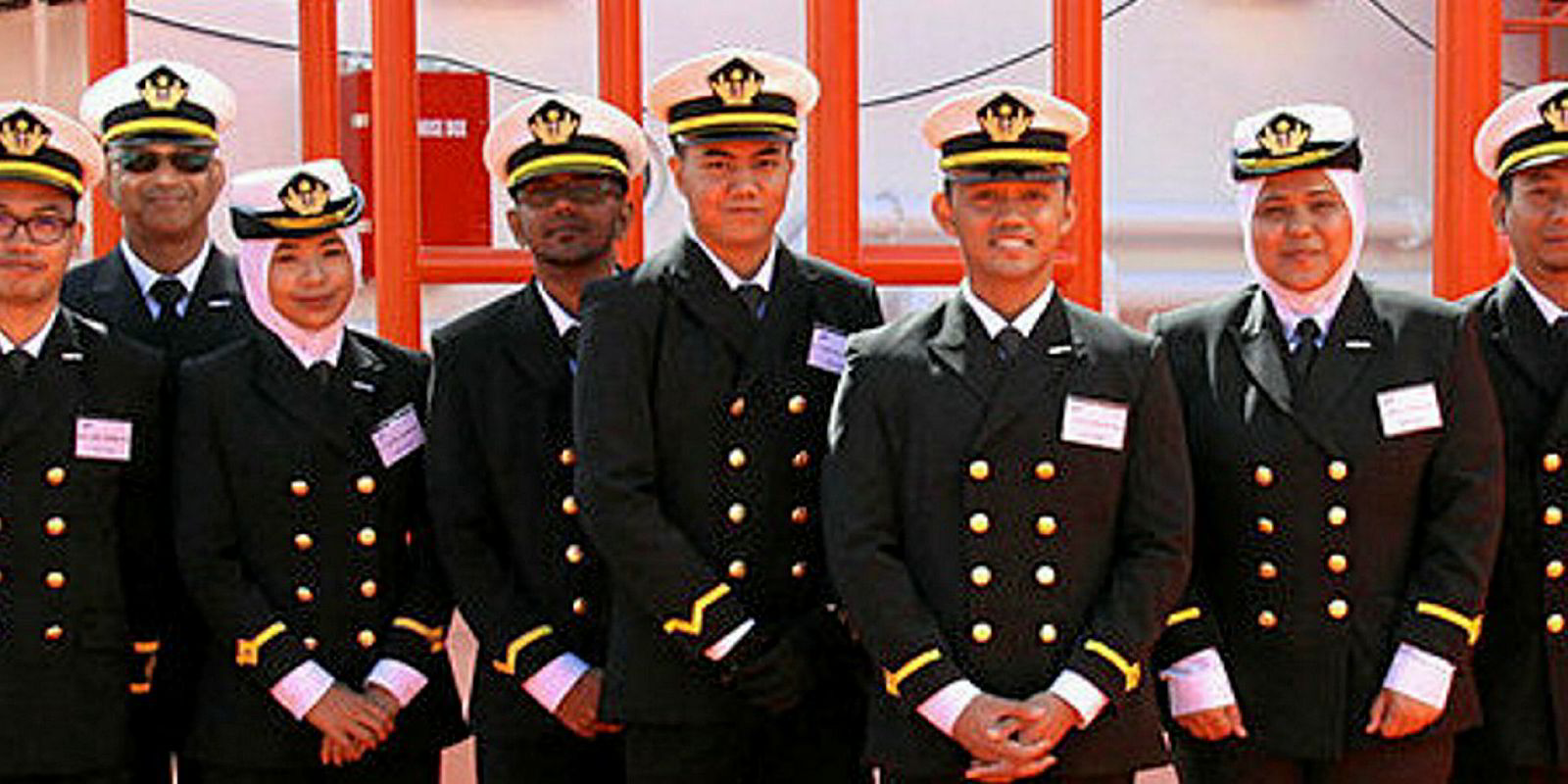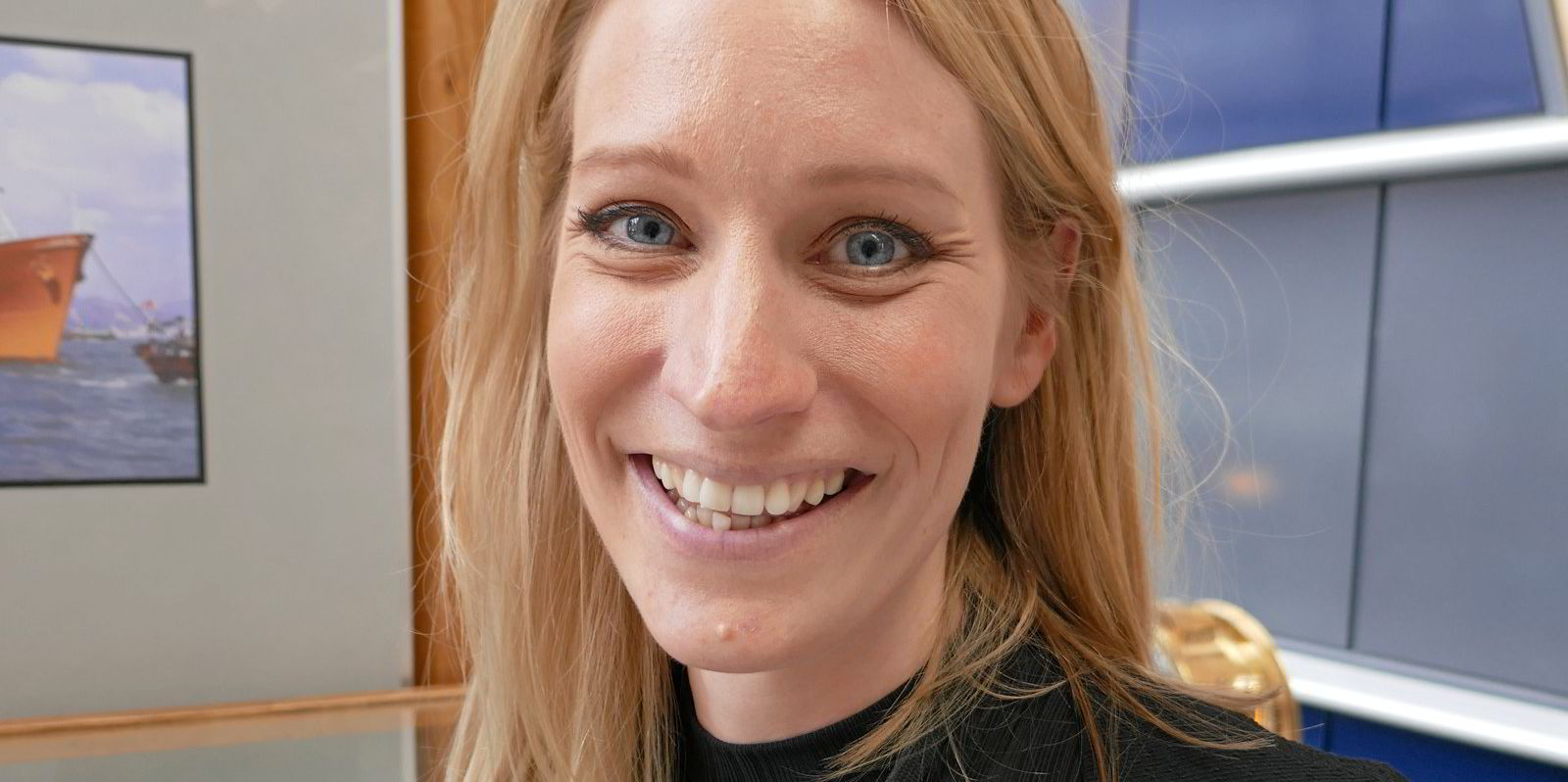Evie Masmata still remembers the day she and a team of colleagues at Pioneer Marine went out to inspect a company vessel moored off Piraeus.
“When the ship’s crew saw a party of seven women and a single man approaching, their jaws just dropped,” she says.
First-time visitors to Pioneer Marine’s offices in Athens are similarly surprised to realise that 50% of its employees are female.
“They don’t expect to see such a high share of women, especially in a shipping company,” says chief financial officer Korinna Tapaktsoglou, a member of the senior executive team.
She and 13 female colleagues make up half of Pioneer Marine’s total staff in Greece, where the Oslo-listed dry bulk handysize company has its headquarters.
This is not the result of any gender-driven agenda or policy, Tapaktsoglou and chief executive Torben Janholt insist. It evolved naturally, as part of an unbiased management style to create a balanced and harmonious team.
Female employment is spreading in the maritime world. However, Pioneer Marine is at the forefront of that trend.
It employs women not just in parts of the business where gender equality is already well established, such as crewing and legal, but also in corners still considered a male bastion: three of its five operation managers are female, including Masmata.
Getting a foothold in that department was not easy, she says. At the beginning, some masters were reluctant to take advice from anybody who was not a master, let alone from a woman. “Girls entering the business have it much easier now,” she observes.
Firm support from management and male colleagues has been key to overcoming such hurdles. With its international background, its Danish chief executive, and a US fund — Garrison Investment Group — as its majority shareholder, the corporate culture favours equal opportunities.

Even Pioneer Marine has some way to go: there is no woman on the board of directors, and the technical department is still very much a male affair. However, in any other respect, it stands heads and shoulders above what some of its female employees have experienced or heard about in business life.
Marriage and babies
“Female job interviewees really still get questions like, ‘Do you consider having a child? If yes, when? Are you in a serious relationship? Will you get married?’” says Eleftheria Savvidaki, the company’s legal counsellor.
“A person like Korinna would never tell us it’s not appropriate to have a child now,” says senior administrative coordinator Sophia Benezes.
Women seeking a job are not always treated to such a gender-blind approach, particularly in Greece, where the labour market is stacked against them and shipping is a rare industry to offer steady, rewarding employment.
Female unemployment in Greece stood at 21% in June, compared with 14% for men. Many women accept part-time work to get a foothold in the labour market. According to official statistics, 13% of employed Greek women occupied such positions last year, more than double the figure for men.
Problems do not stop if they find a job. Greece remains a difficult place for working women, let alone mothers. Reliable childcare is hard to find, unless one pays out of one’s own pocket, sometimes not even then. That is an issue for Pioneer Marine’s employees, most of whom are in their 30s and 40s.
Working at a company with a high percentage of women can make life much easier. Employees are accommodated if they have to pick up a child from school or there is a family emergency.
“We’re results-oriented,“ says Tapaktsoglou, who is a mother of two. “Anybody can deliver in their own way and in their own time, to keep family life in balance.”
This approach seems to be working. Most of Pioneer Marine’s female employees with children had them after they joined the company.
Understanding and flexibility towards all of its staff, male and female, goes a long way to fostering company loyalty, according to Tapaktsoglou. Teamwork played a big role in Pioneer Marine getting back on its feet after 2017, when its survival seemed at stake and owners instituted a management shake-up to keep it going.
But all the understanding and accommodation in the world does not change the fact that shipping is a 24-hour job. Sometimes you will have to bark instructions into the phone while your kid is playing in the park, or the phone will be glued to your ear at five in the morning.
It helps if husbands and partners are in shipping themselves and are familiar with the pressures of the business, says Katerina Chatzivasiliou, another member of the operations department. If not, they just have to get used to it.







